AMD Ryzen 5 1600X CPU Review
Why you can trust Tom's Hardware
Workstation Benchmarks
As mentioned, our U.S. and German teams worked on different parts of our launch coverage. Both teams unified on their utilization of the Windows 10 Creators Update, though, updating to the latest motherboard firmware versions and chipset drivers as well. As with the gaming results, these are completely new for today's story.
2D Benchmarks: DirectX And GDI/GDI+
The Ryzen 5 1600X lands exactly where we'd expect in a lightly-threaded workload dependent on clock rate: between the 1800X and Ryzen 7 1700X.
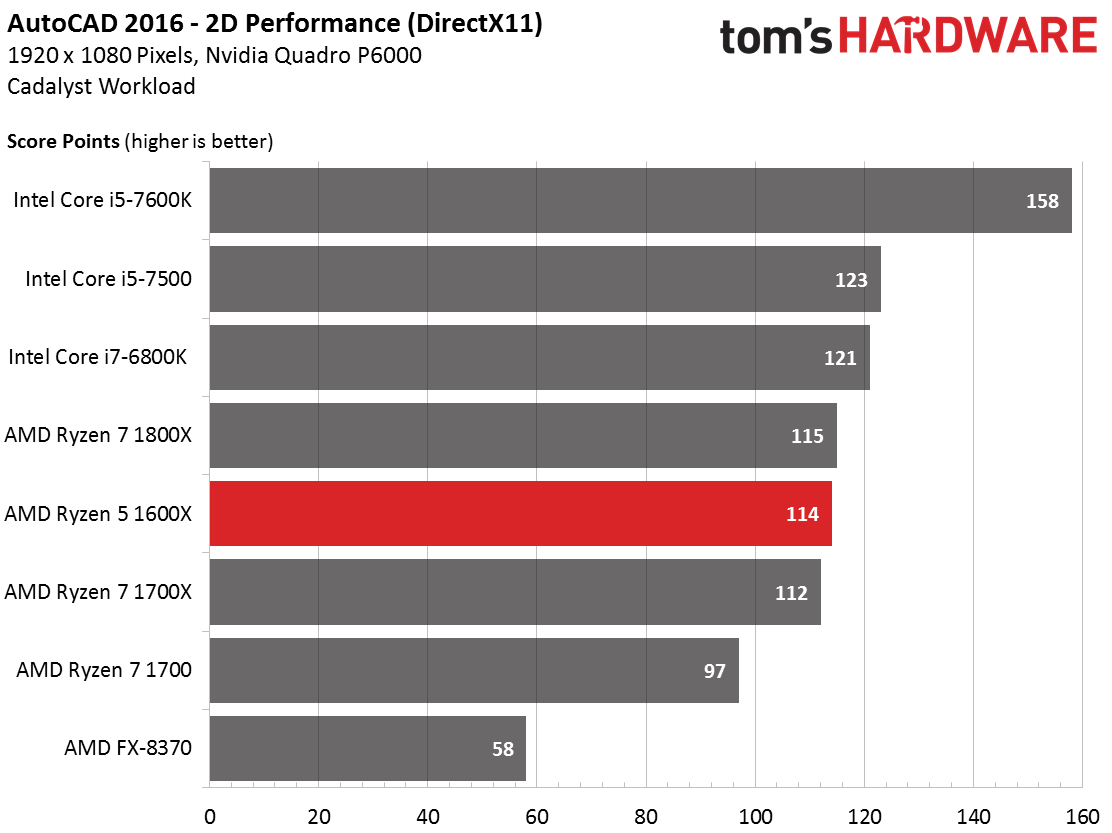
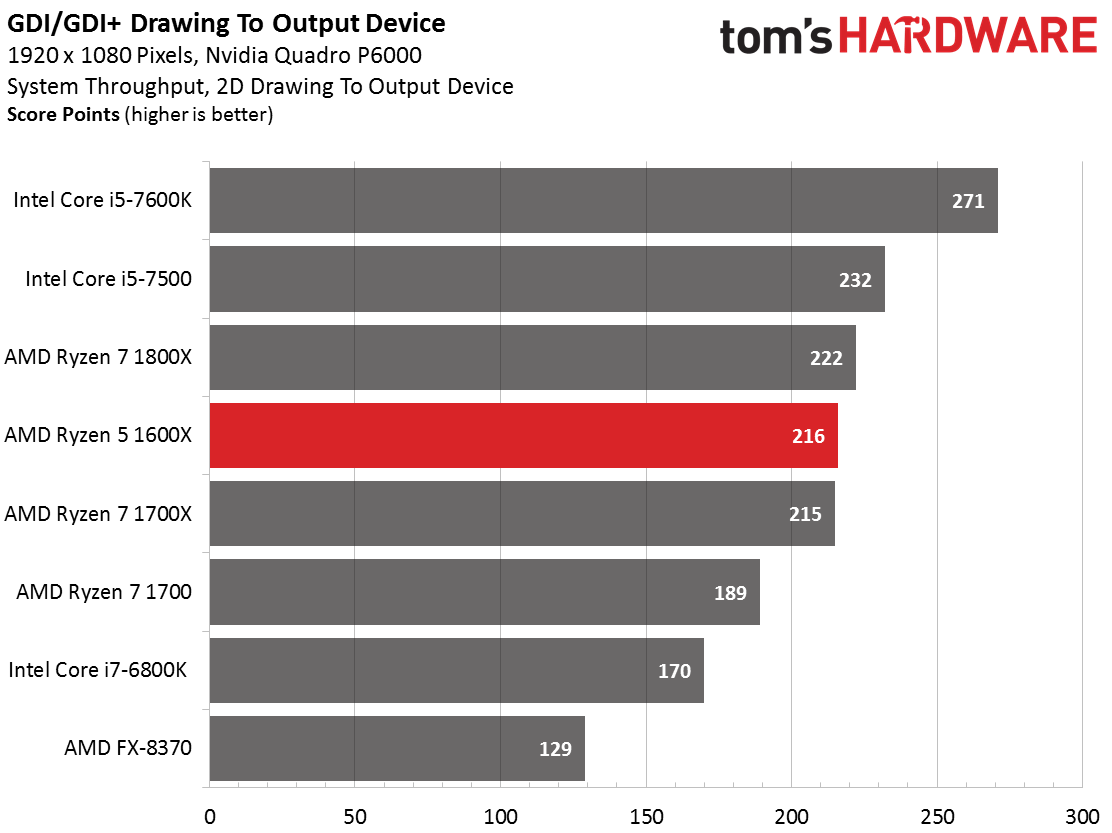
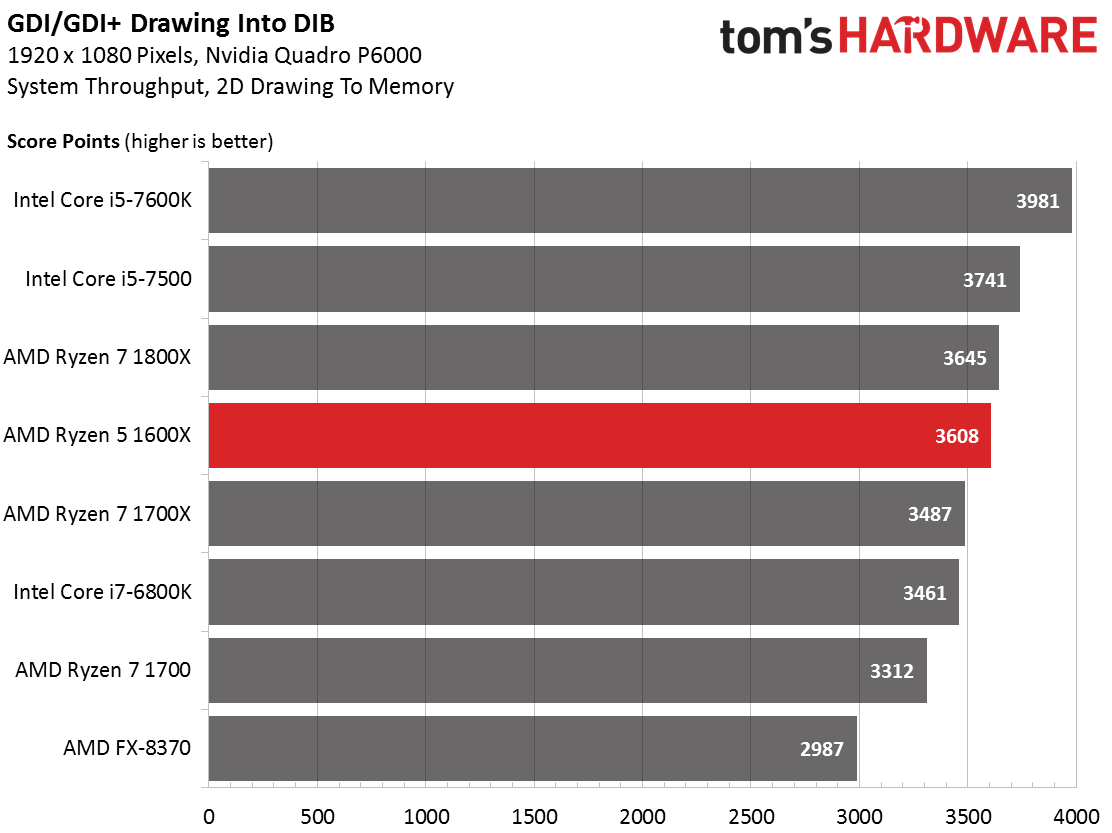
2D Benchmarks: Adobe Creative Cloud
Clock rate reigns supreme yet again, though the Ryzen 5 1600X does trail Ryzen 7 1700X this time around. Still, when you consider a higher frequency helps the 1600X beat AMD's eight-core Ryzen 7 1700, we might already be looking at a better value play just days after commending the 1700's position against AMD's higher-end Ryzen 7s.
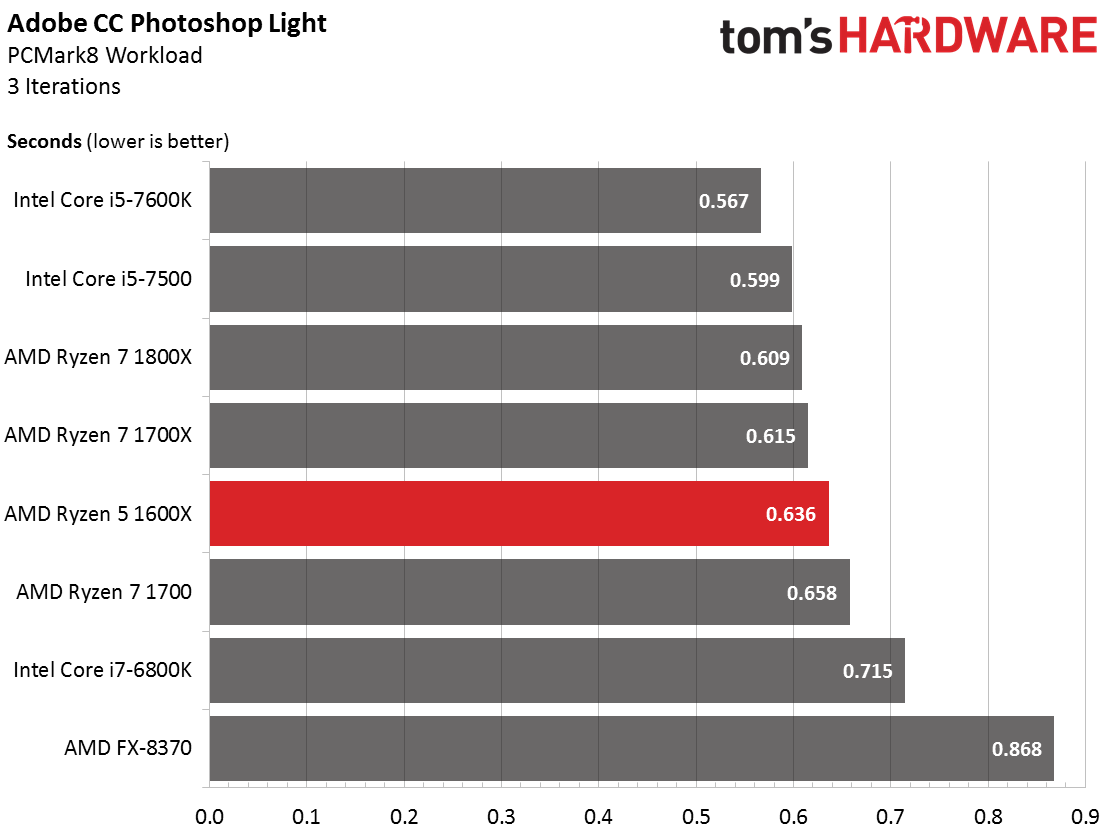
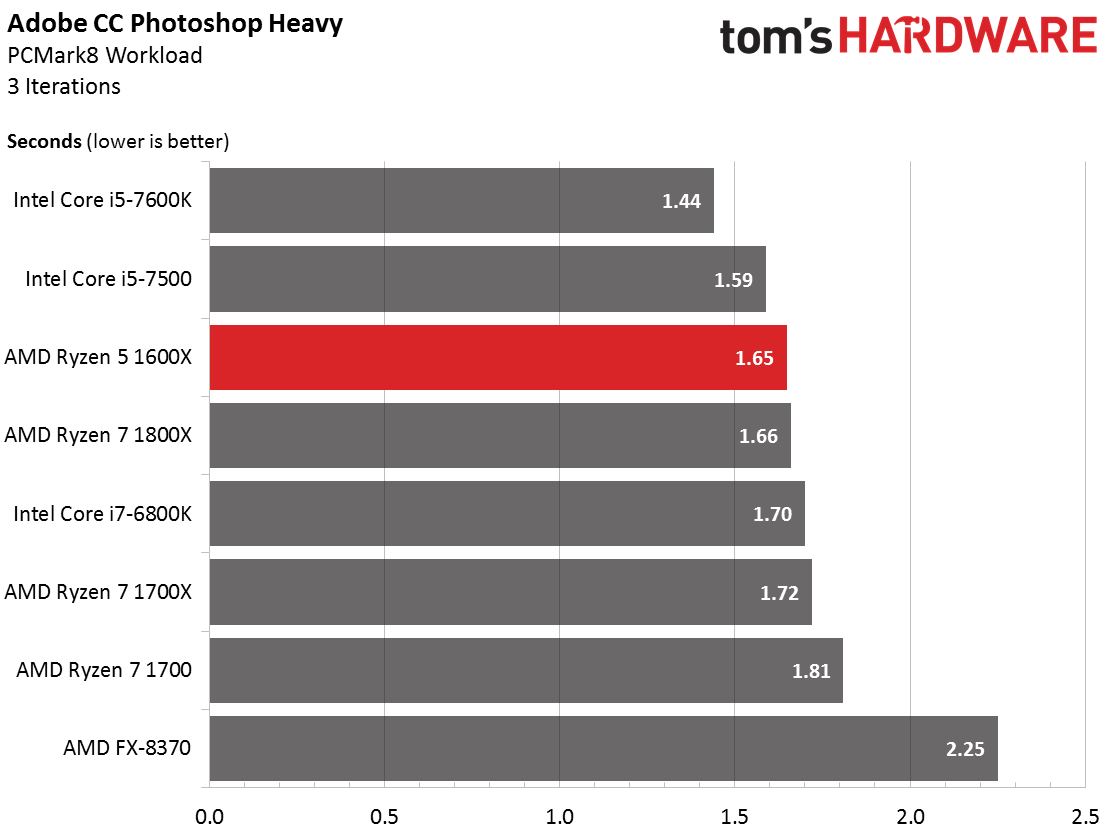
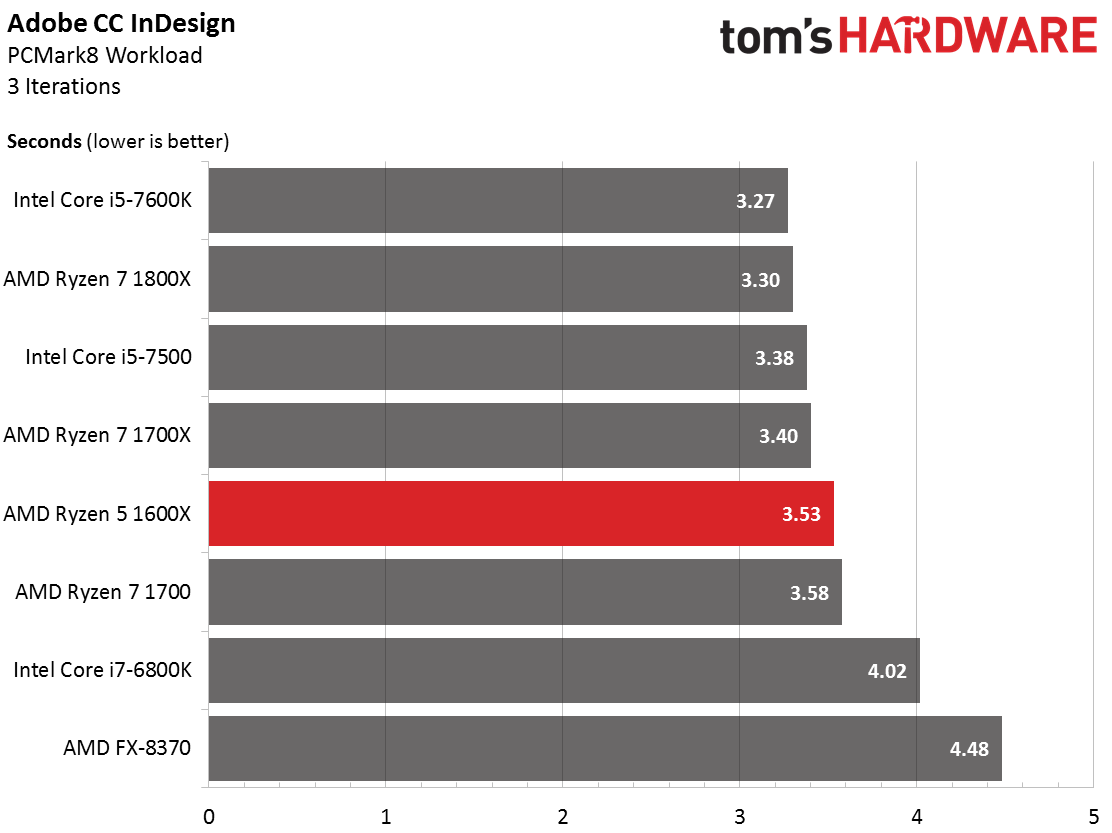

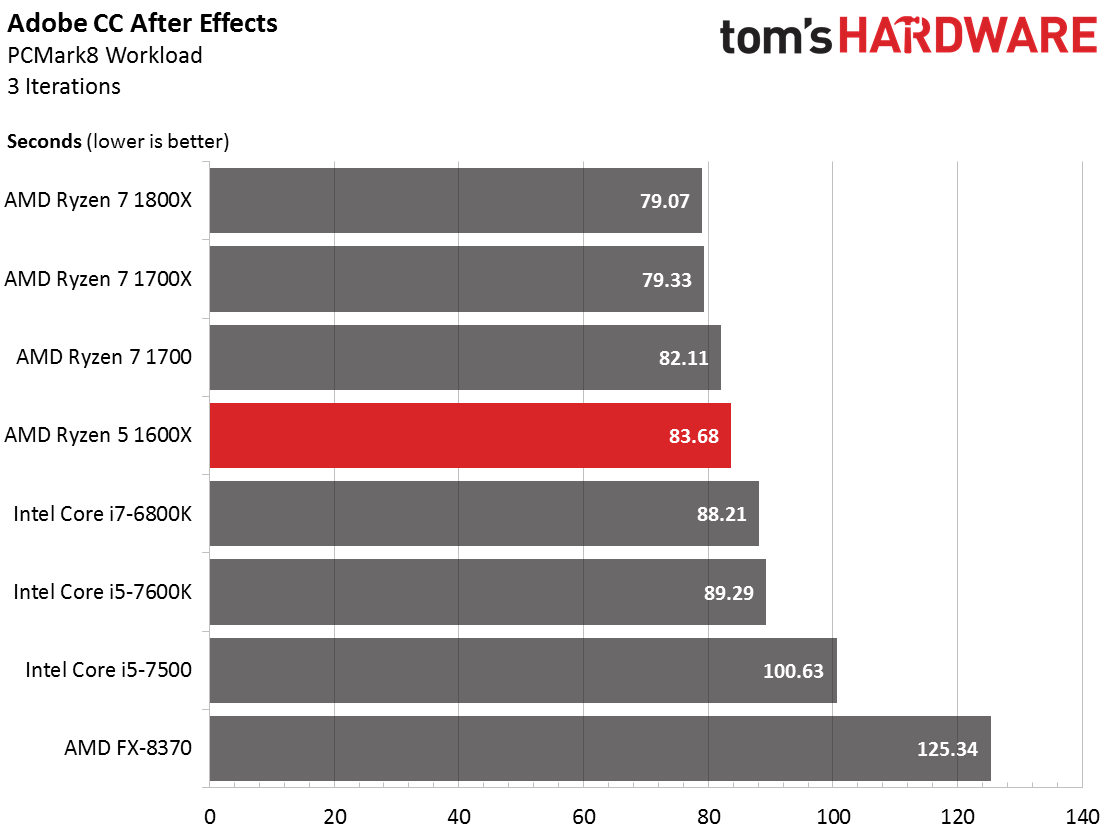
3D Benchmarks: DirectX and OpenGL
Consistently, we see AMD's Ryzen 5 1600X land between the Ryzen 7 1800X and 1700X. It should be clear by now how important clock rate is to per-core performance, particularly when the workload doesn't utilize all of a processor's available execution resources (as in these benchmarks).
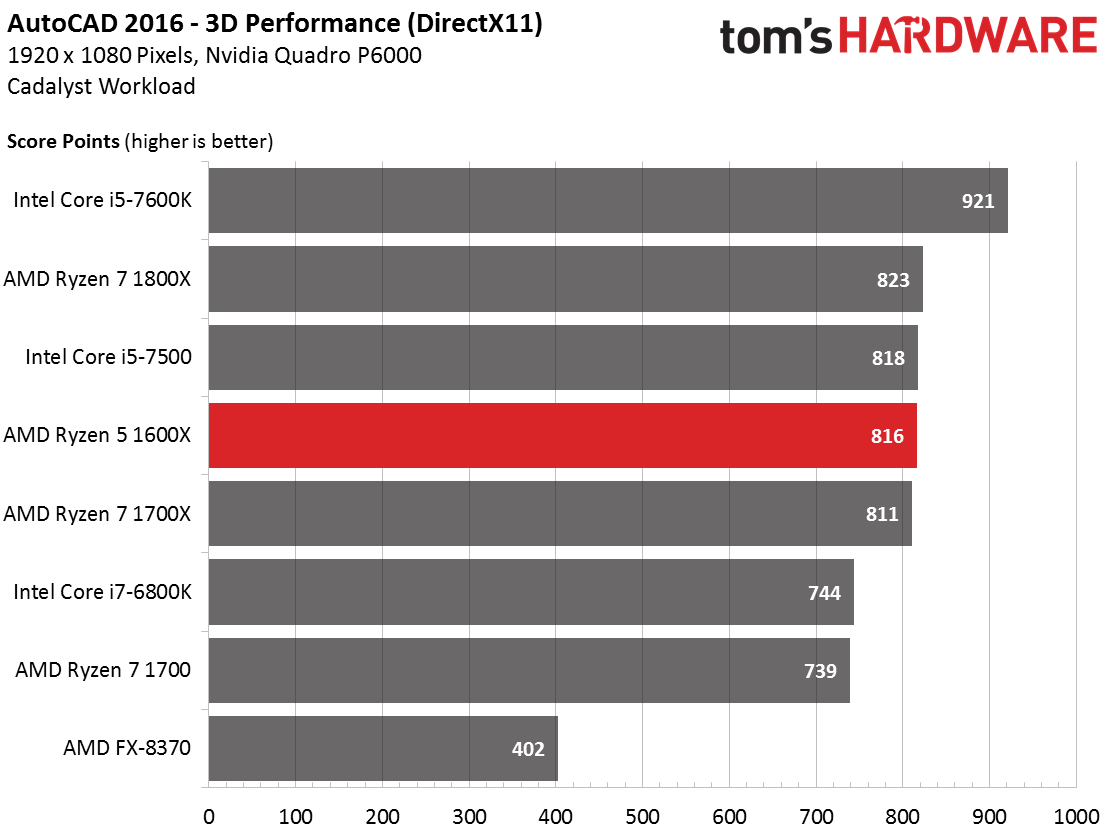
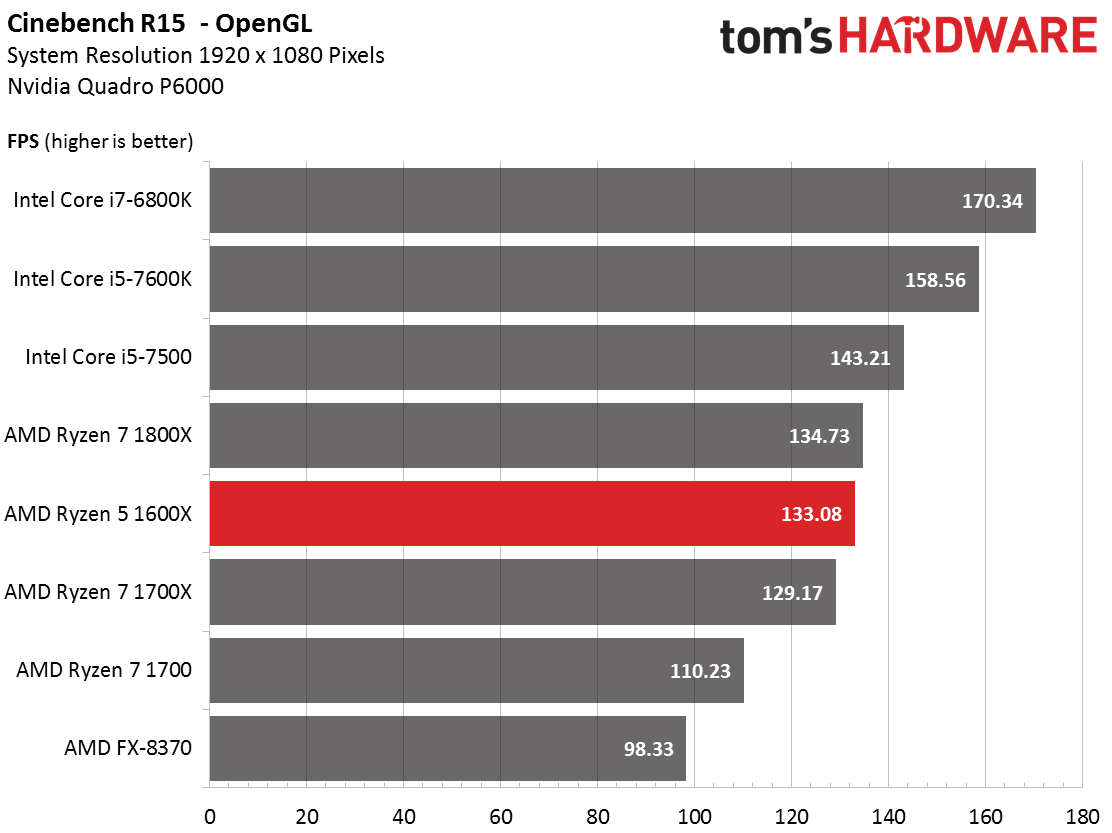
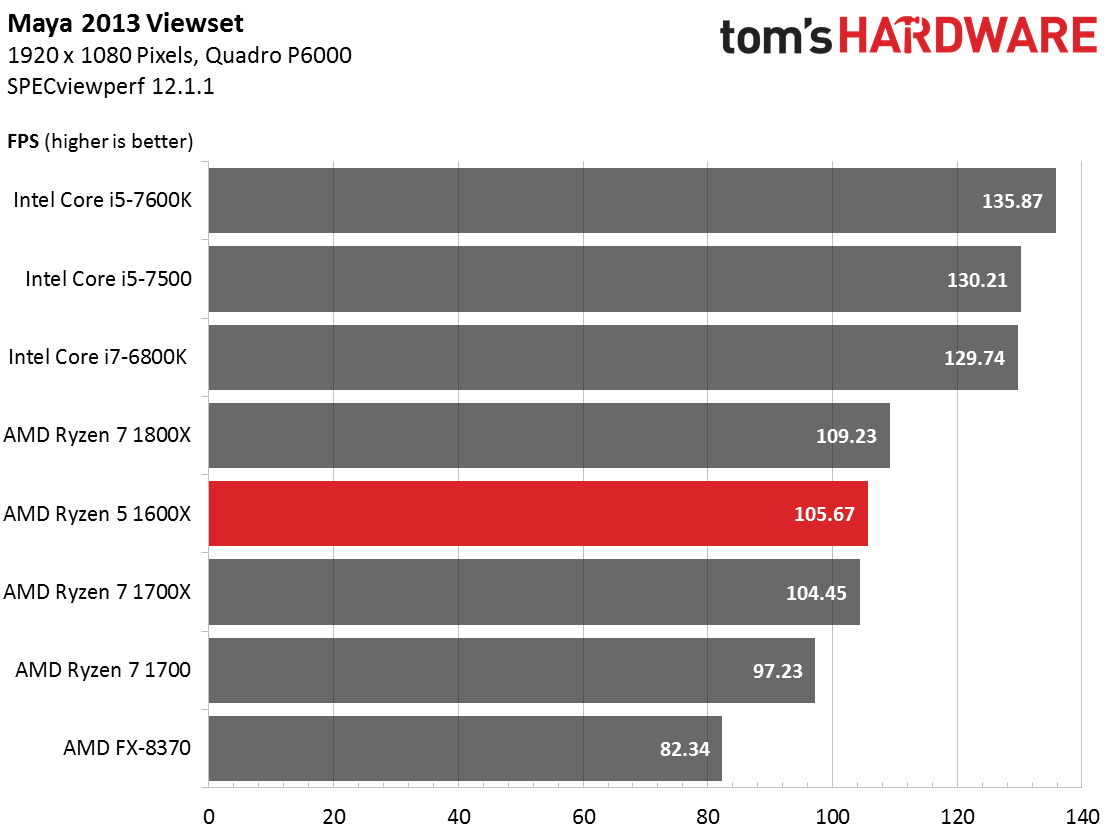
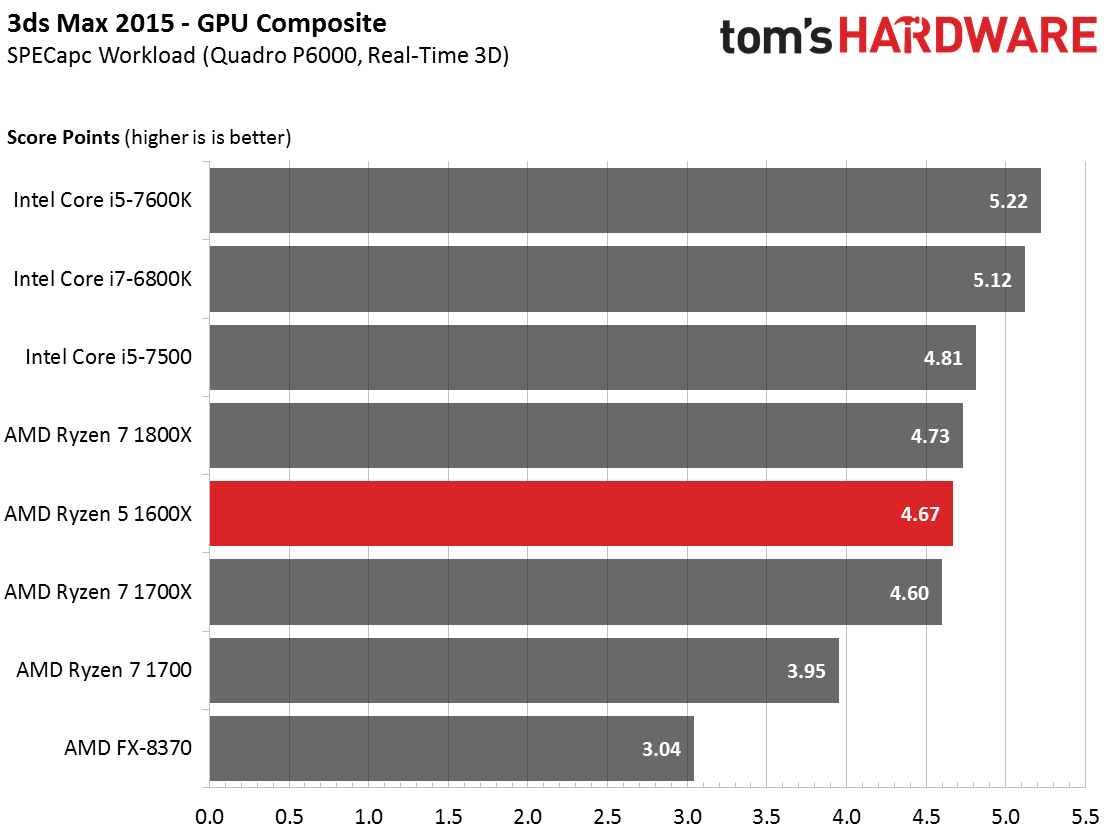
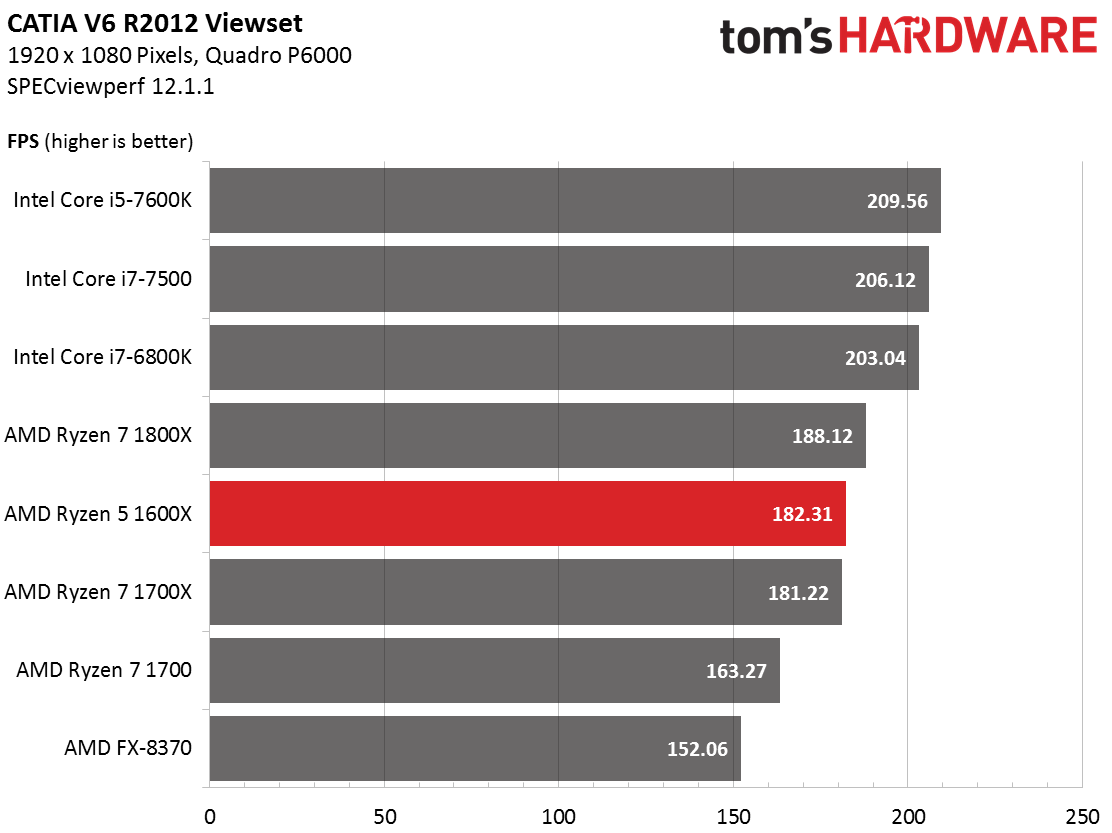
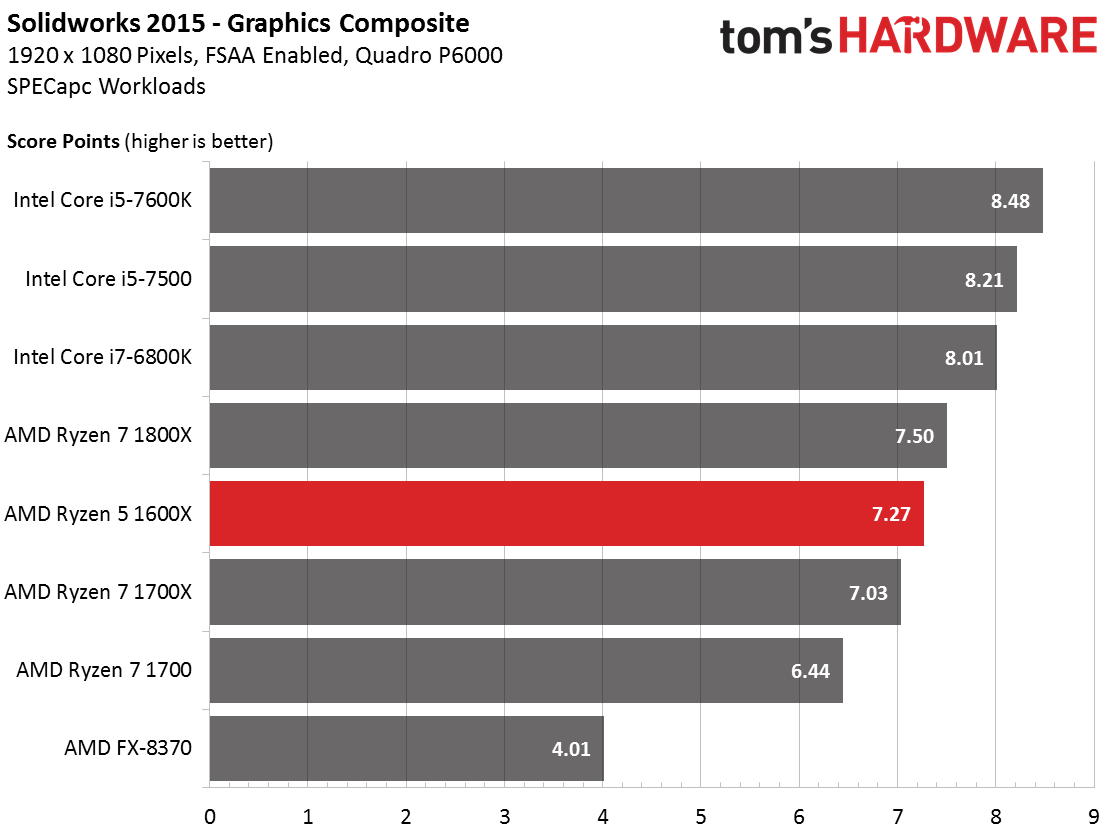
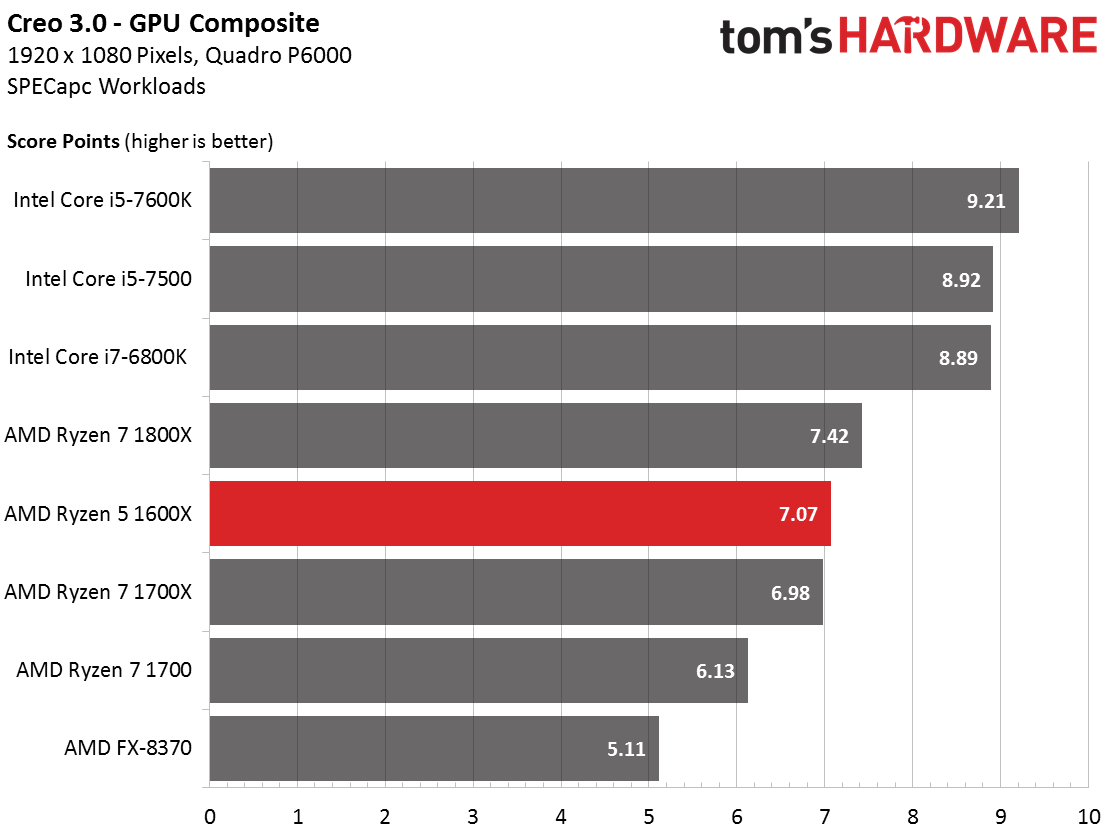
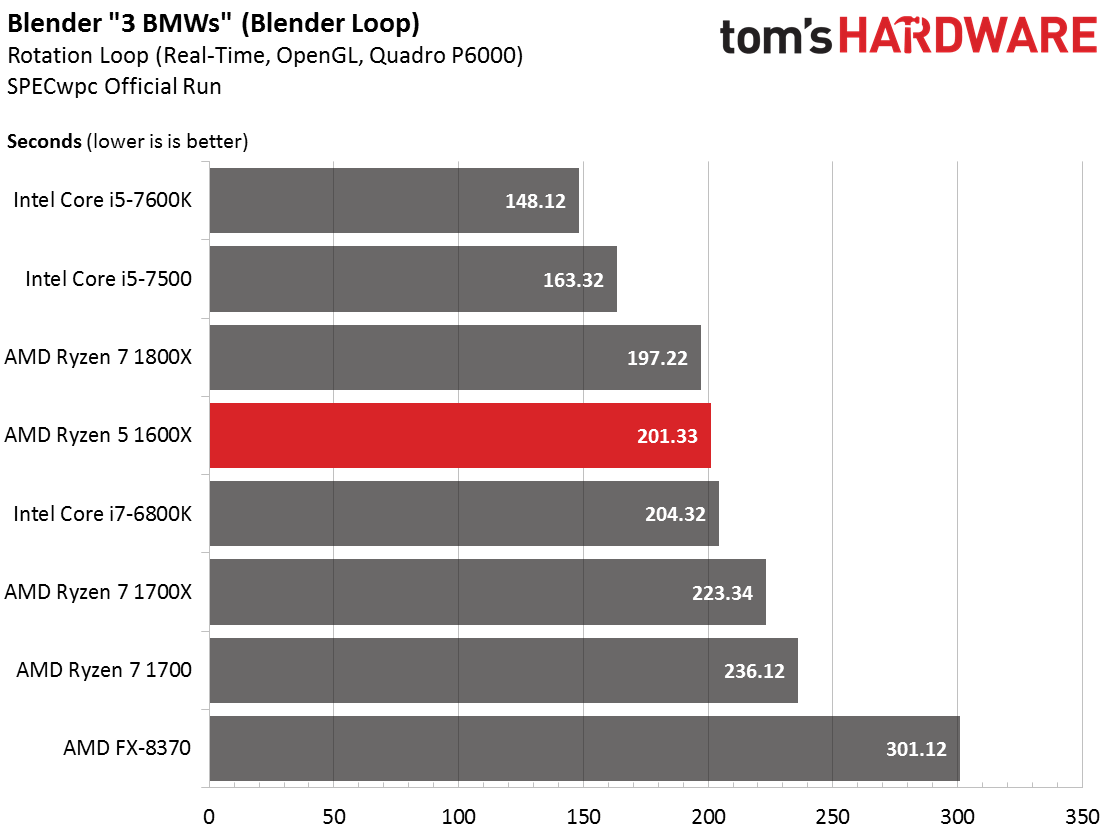
CPU Performance: Workstation
In the professional apps able to fully utilize an eight-core Ryzen 7 CPU, the Ryzen 5 1600X cannot keep up. It does, however, trounce quad-core Core i5s in those workloads. Where the threading isn't as thick, a clock rate advantage helps propel the 1600X above Ryzen 7 1700.
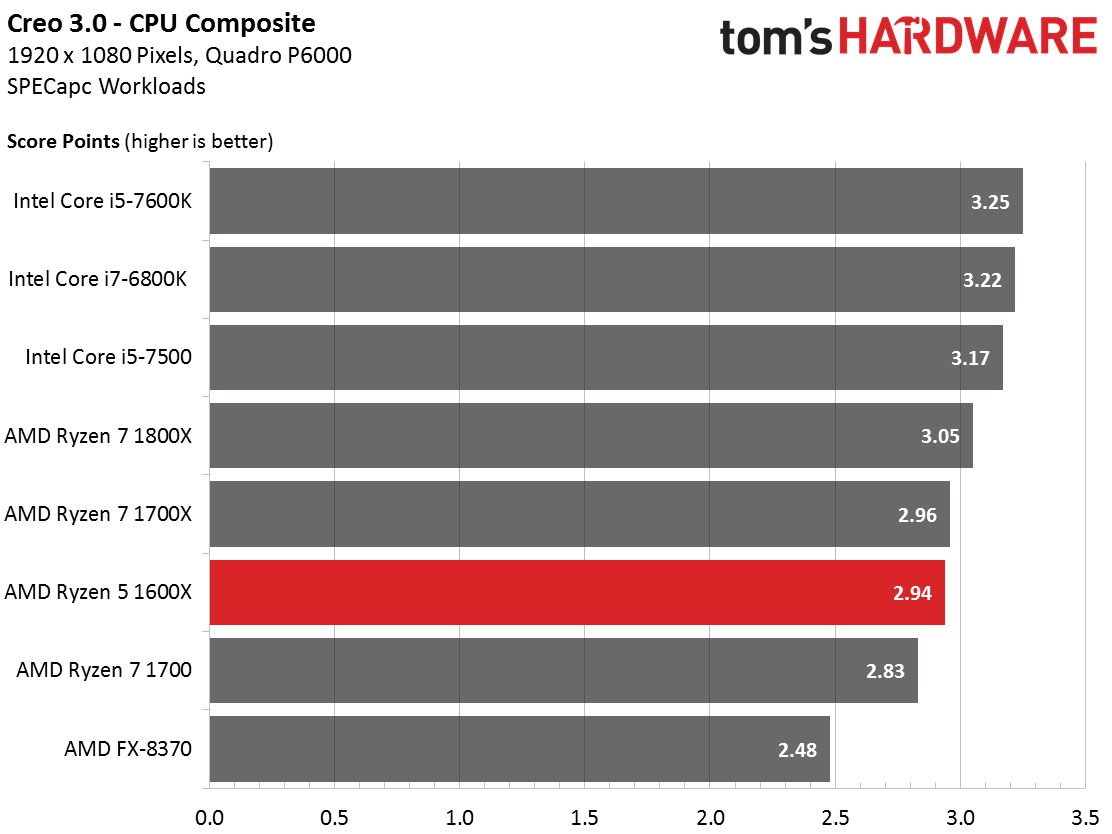
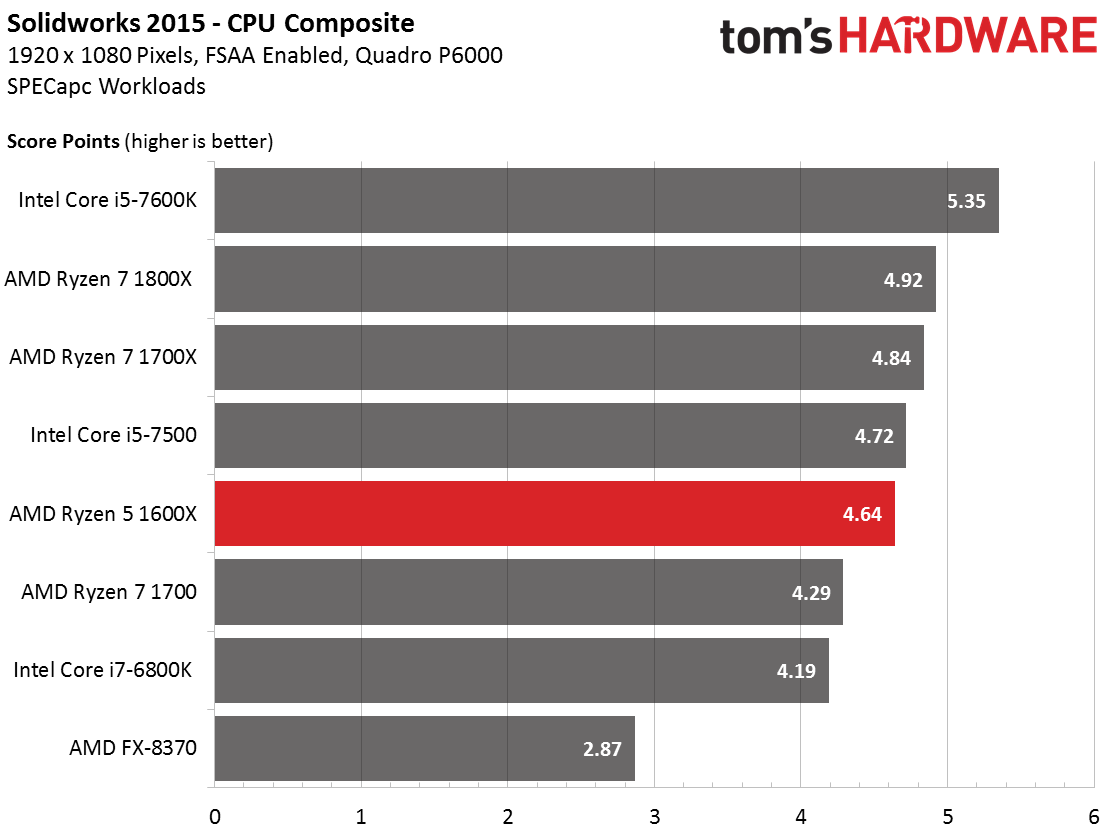
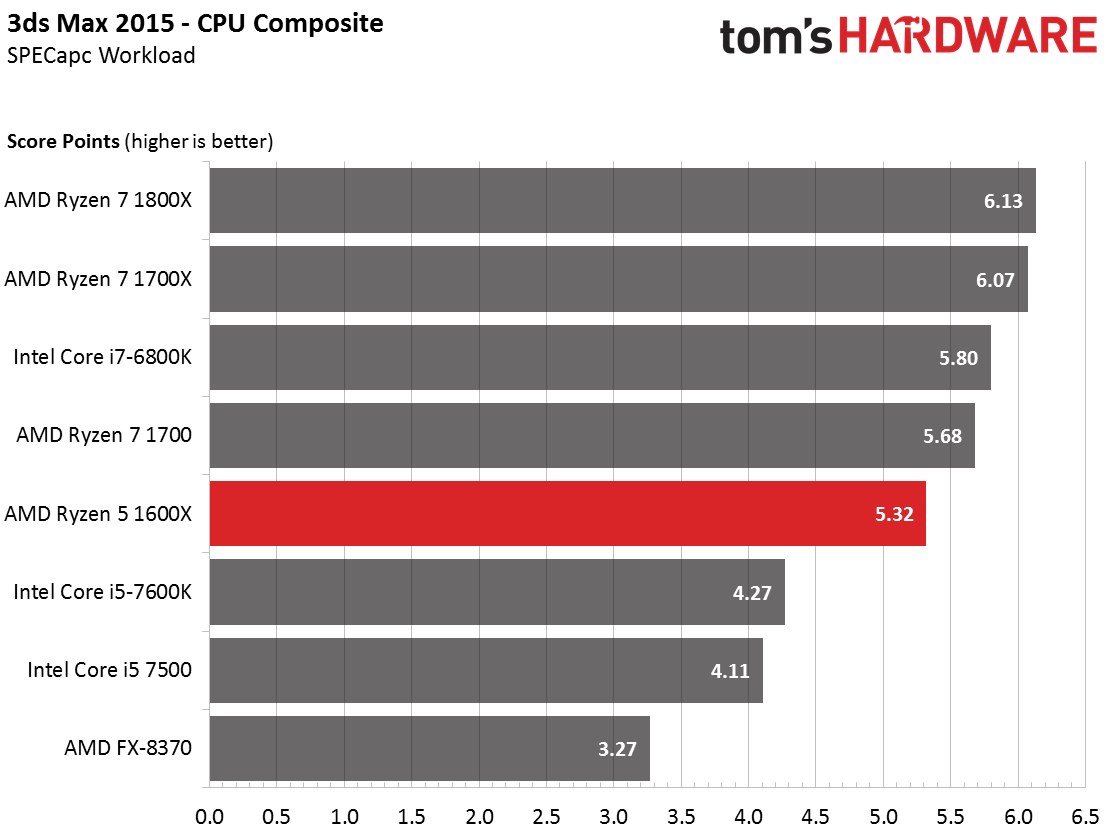

CPU Performance: Photorealistic Rendering
Blender really likes the 1600X's combination of 6C/12T and 1800X-equivalent clock rates, often placing the Ryzen 5 over AMD's Ryzen 7 1700. Once again, in the tests that do utilize Ryzen's resources, it obliterates the Core i5s, going so far as to challenge Core i7-6800K in certain workloads.
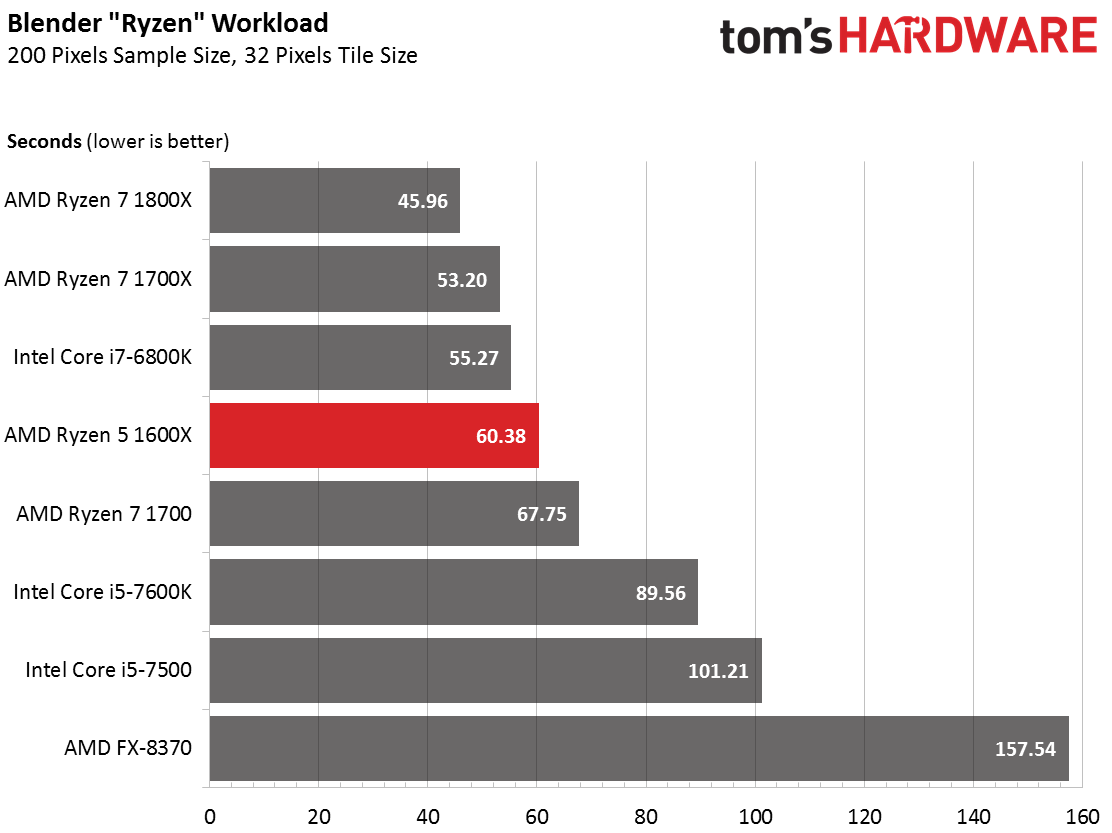
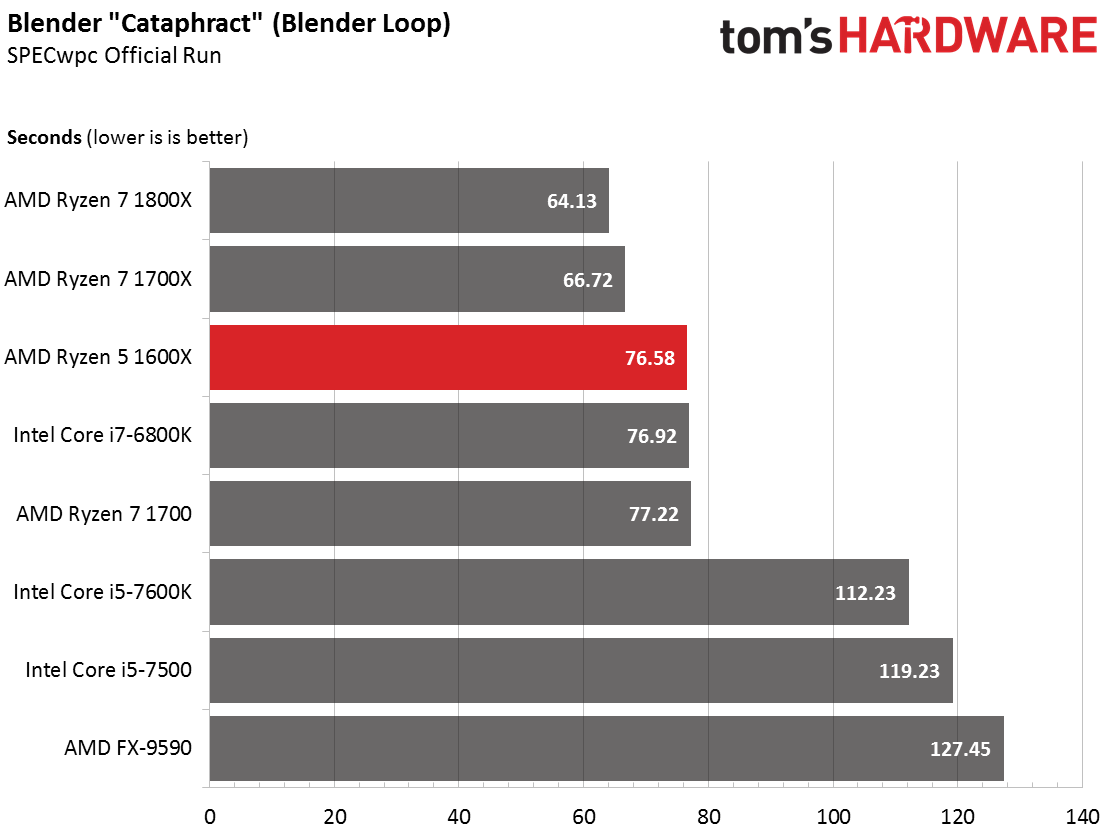
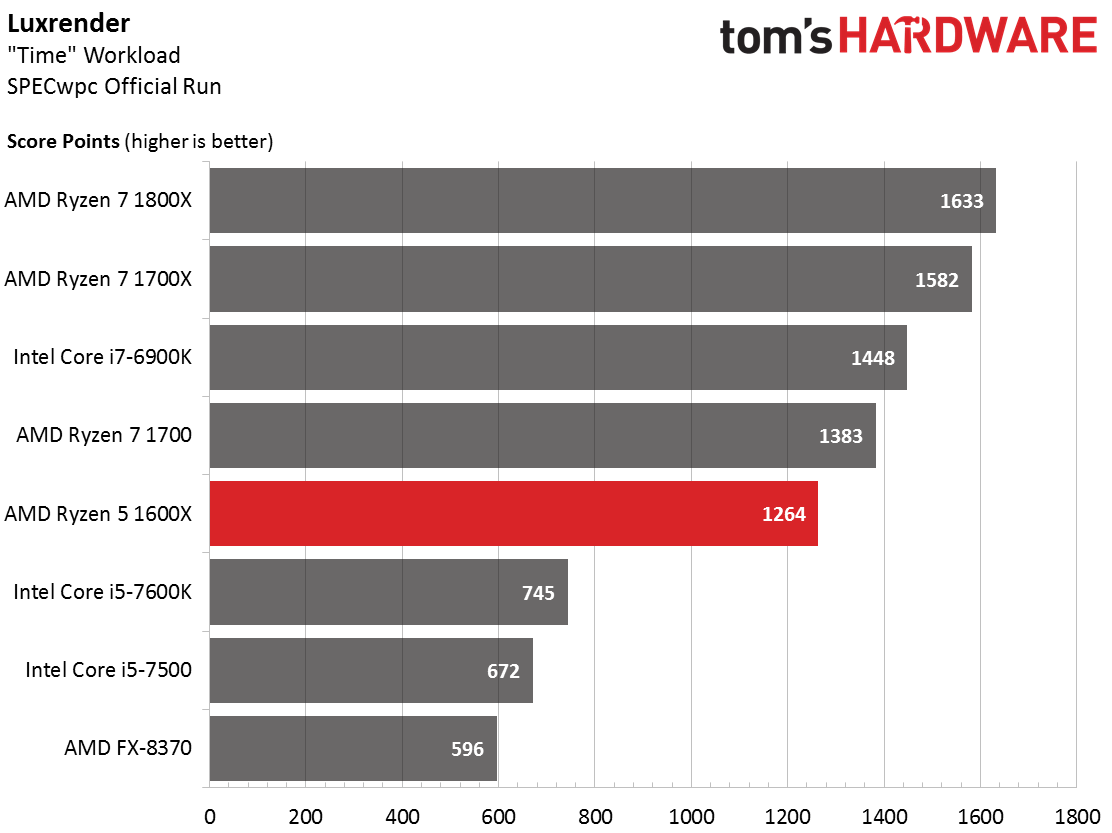
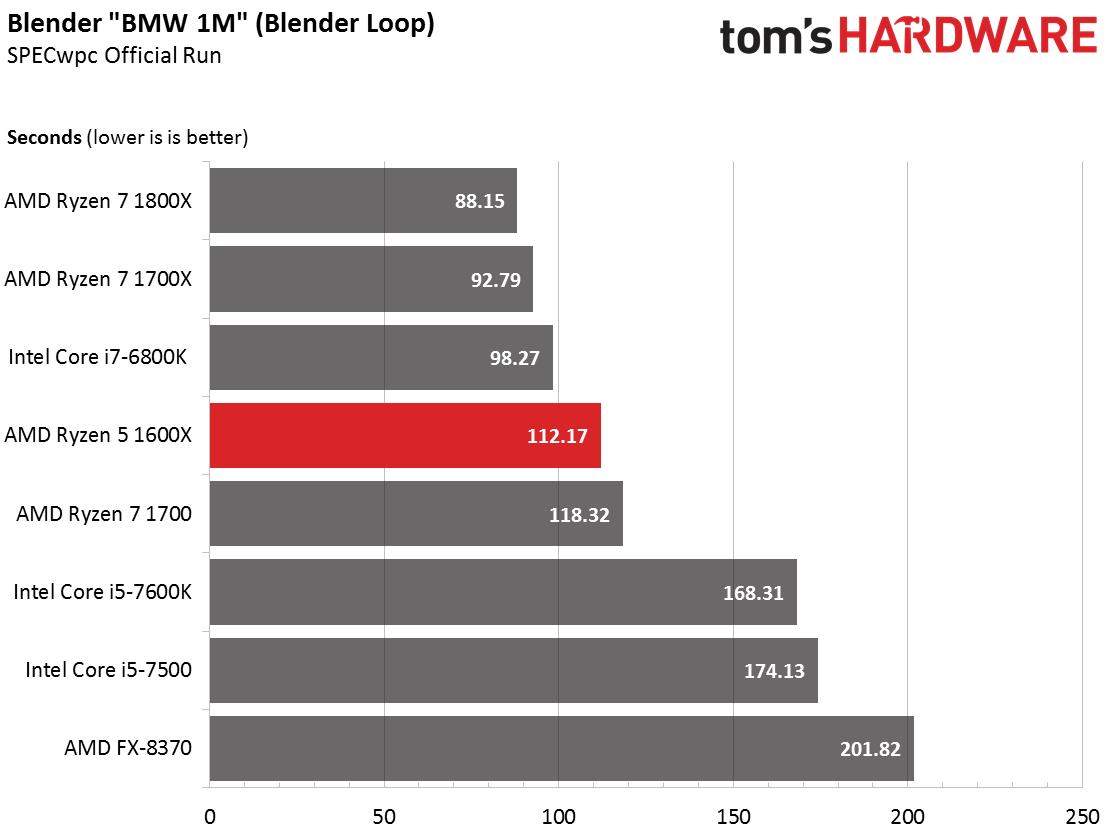
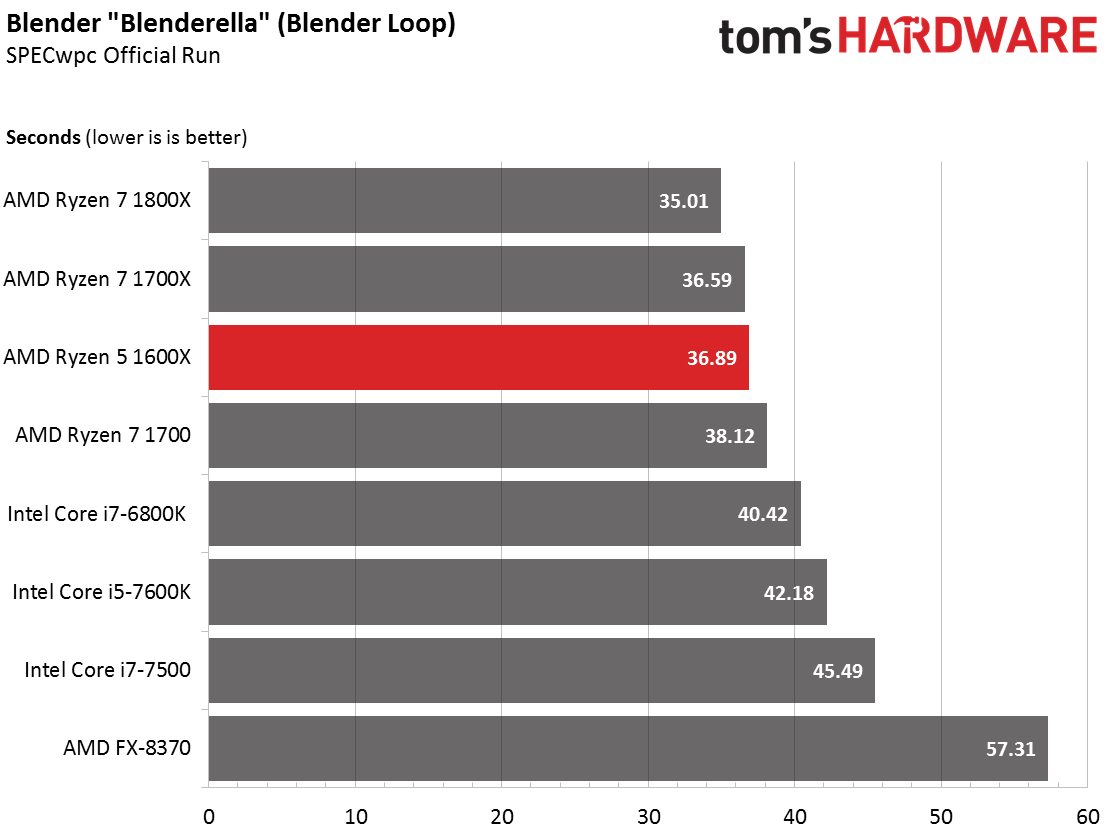
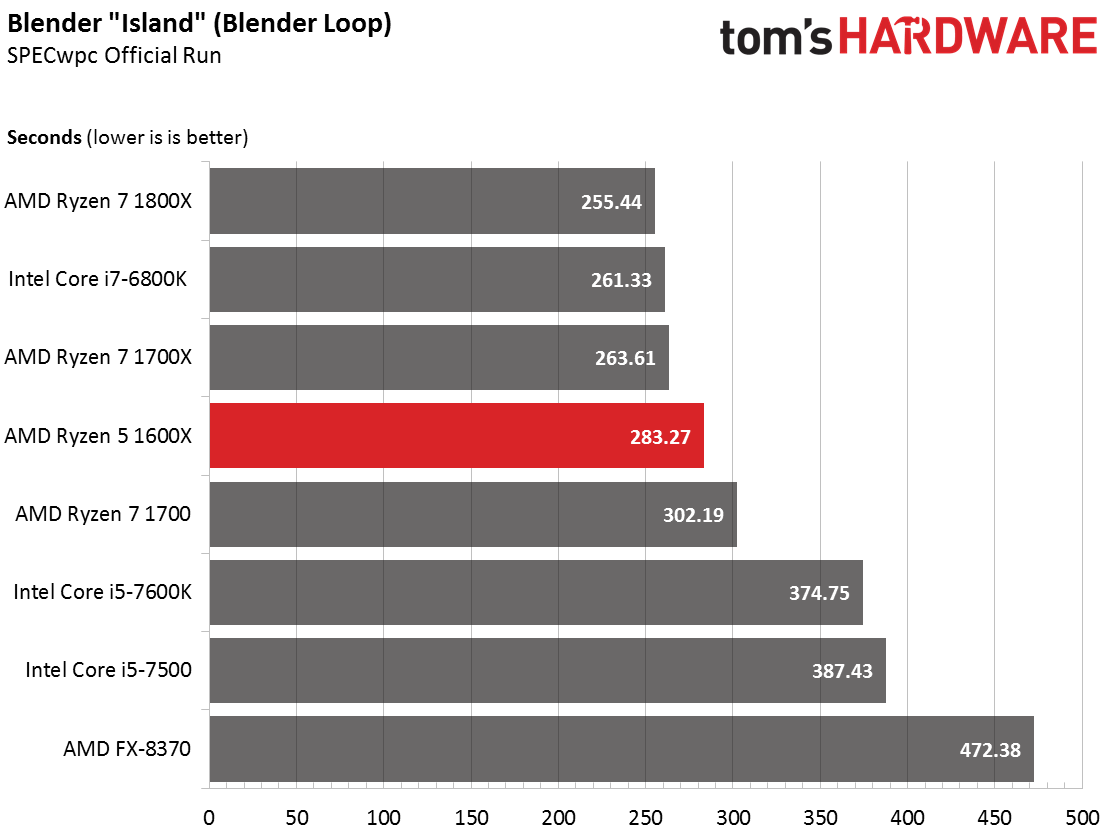
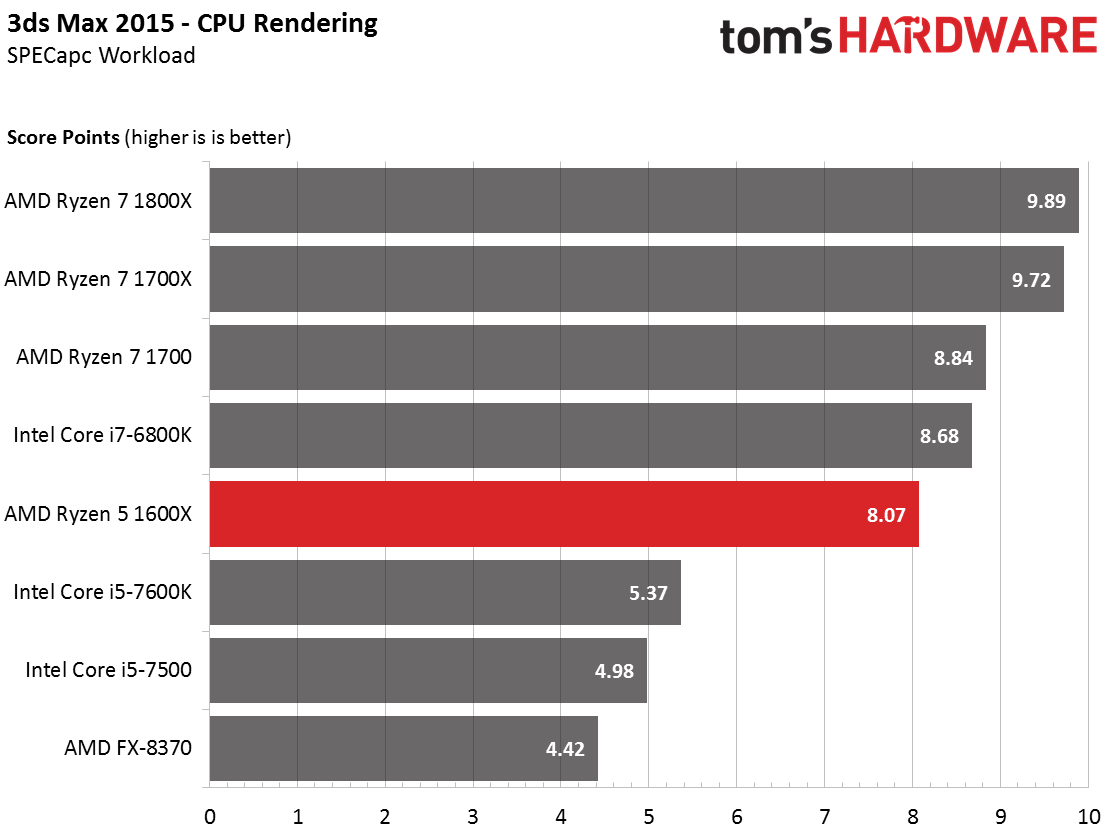
CPU Performance: Encoding & Compression/Decompression
HandBrake readily utilizes all of the cores these CPUs present, so it's no surprise that the Ryzen 7 line-up appears ahead of Ryzen 5 1600X. More interesting, perhaps, is the fact that Ryzen 5 1600X appears alongside the $420 Core i7-6800K.
Get Tom's Hardware's best news and in-depth reviews, straight to your inbox.
Our 7-Zip compression workload is threaded, yet the higher-clocked Ryzen 5 1600X slides in ahead of Ryzen 7 1700. The quad-core Core i5s are quite simply out-classed. The decompression test cares only for clock rate and IPC throughput, though. Intel's Kaby Lake architecture rises to the top, followed by Broadwell-E. Ryzen 5 1600X must do battle against the Ryzen 7 models using its generally higher frequency.
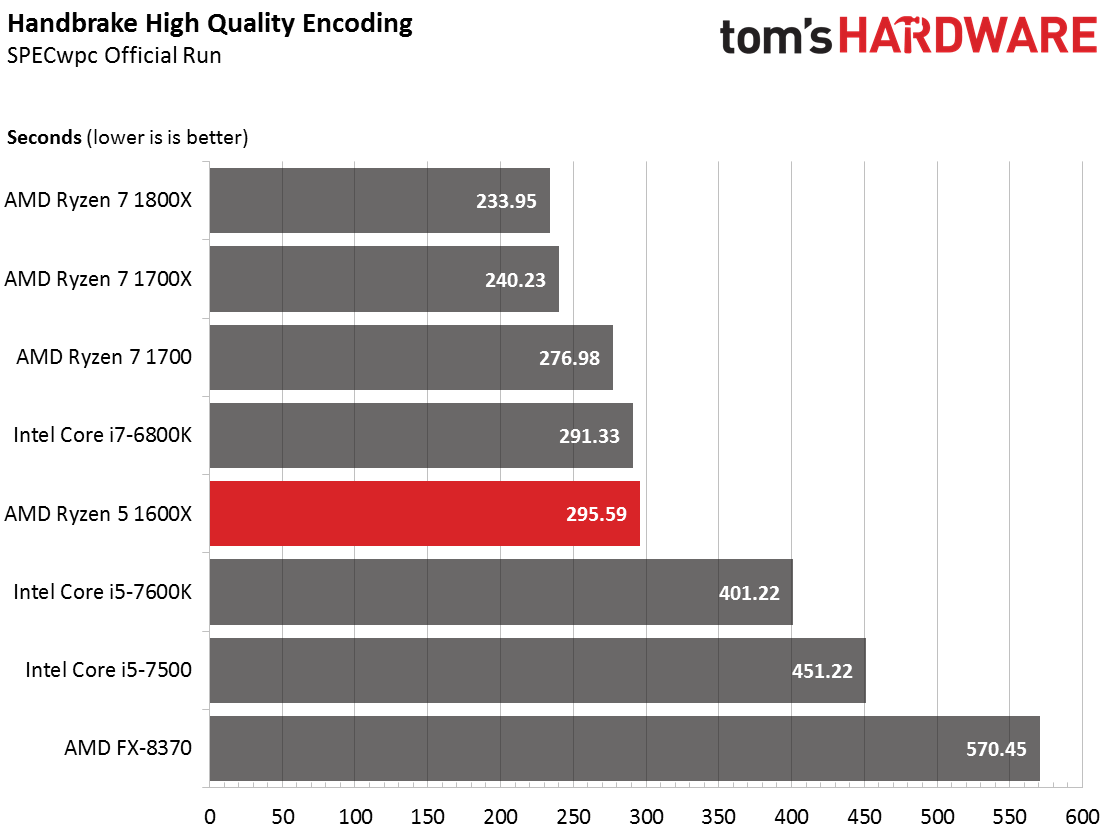
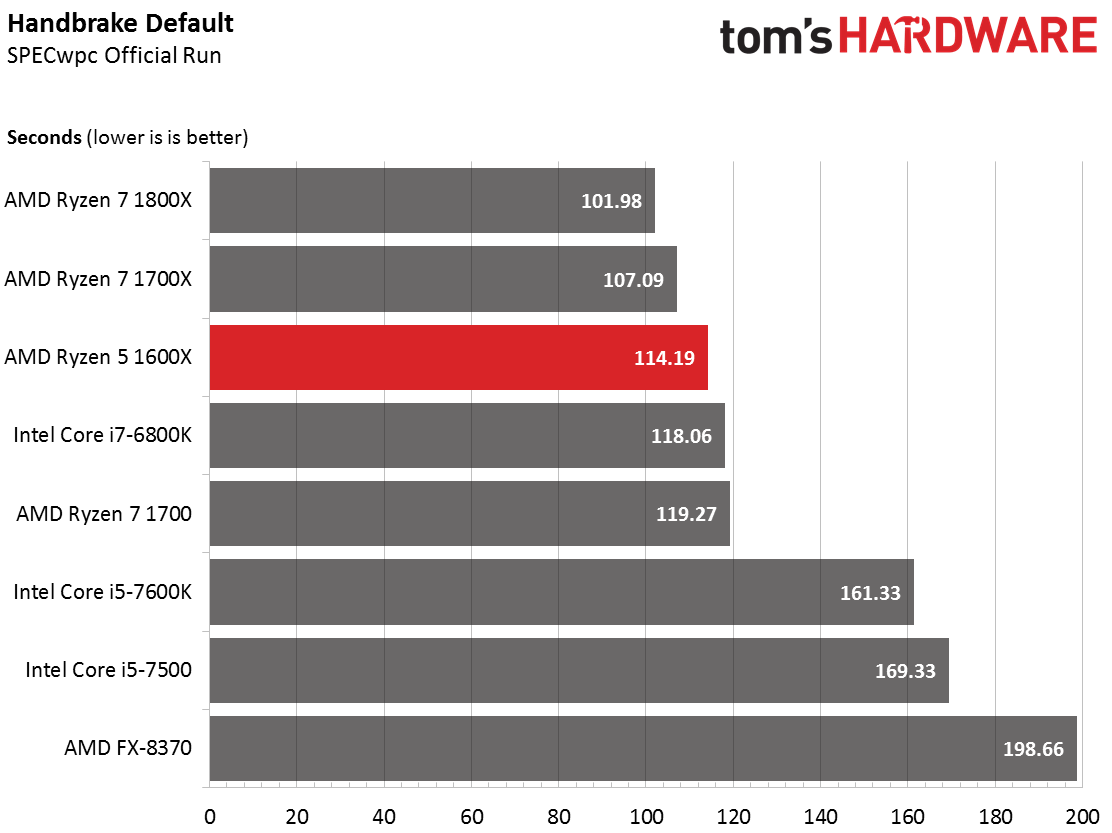
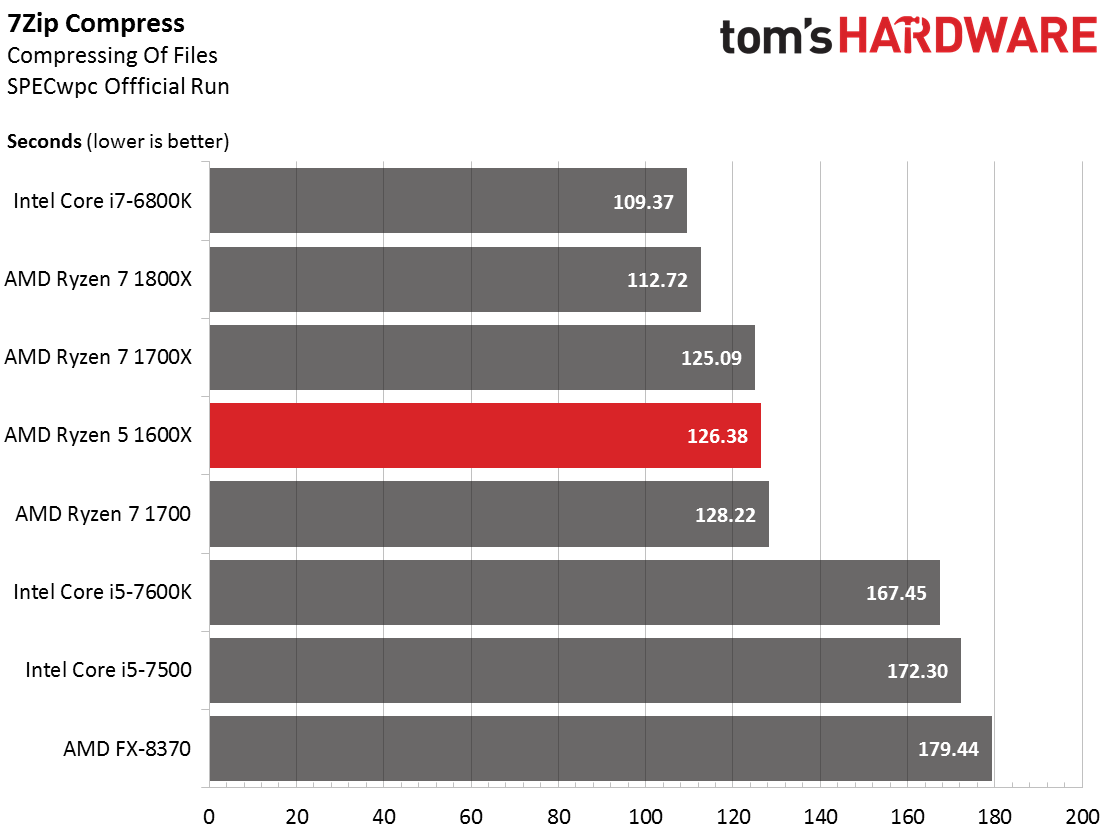
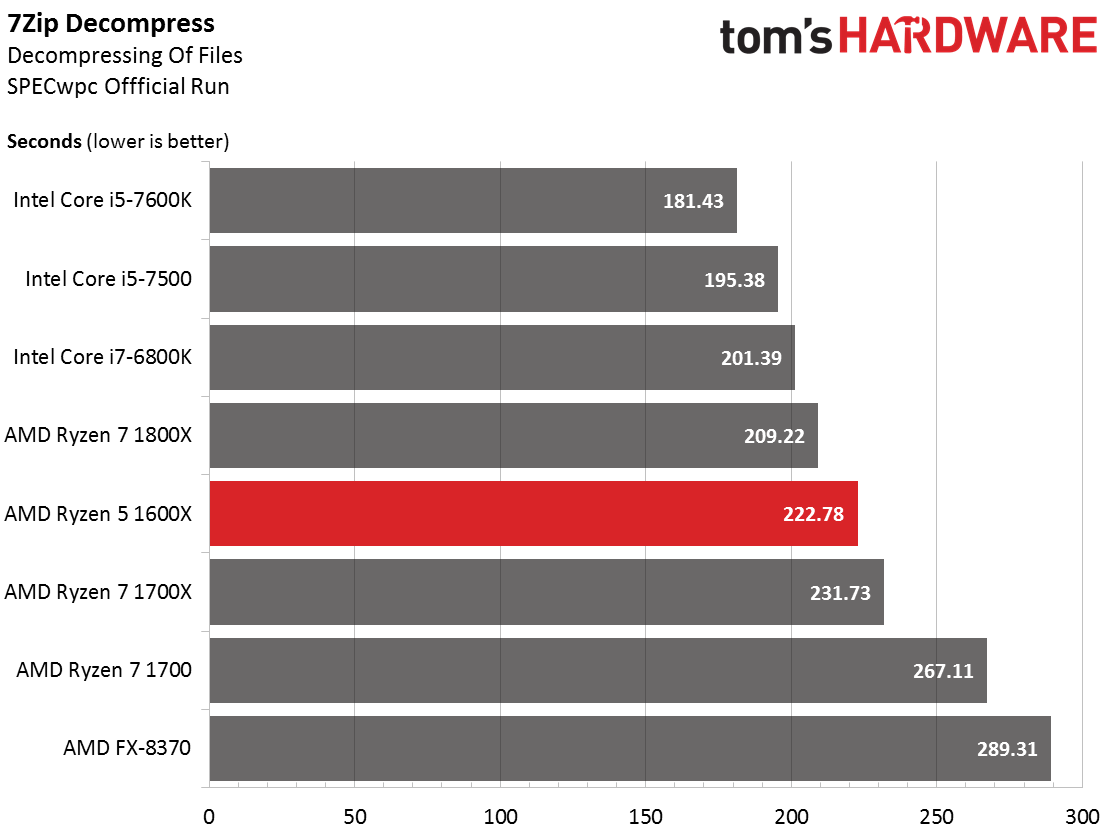
Overall, Ryzen 5 1600X is an interesting workstation chip. It leverages six SMT-enabled cores and a reasonably high clock rate. Pair the 1600X up with an inexpensive B350-based motherboard, and Intel's Broadwell-E-based Core i7s can't touch the resulting value. AMD's weakness is memory support. We couldn't use more than 32GB in our test system, and if you go over two modules, you're sacrificing bandwidth on the already-anemic dual-channel controller.
MORE: Best CPUs
MORE: Intel & AMD Processor Hierarchy
MORE: All CPU Content

Paul Alcorn is the Editor-in-Chief for Tom's Hardware US. He also writes news and reviews on CPUs, storage, and enterprise hardware.
-
ninja_warrior If you can reliably overclock any of the ryzen 5/7 to 4.0, why would you get the 1600x over the 1700? Comparing a 1600x at 4.0 to a 1700 at 3.0 and then concluding that it's a better CPU when the 1700 can overclock exactly the same seems pretty stupidReply -
bloodroses A little disappointing for the Ryzen 5's imo. You'd think with the reduced core count you'd get better frequencies (and OC'ing) than what you get with the Ryzen 7.Reply
I honestly don't see a reason why to get a Ryzen 5 at this point since the i5 is definitely better for gaming and the Ryzen 7 is better for workstation use. The price alone takes it out of its own market. -
tamban A CPU review with only gaming benchmarks? Tom's hardware really likes Intel's hardware.Reply -
FormatC Reply
Try page 10 :P19547998 said:A CPU review with only gaming benchmarks? Tom's hardware really likes Intel's hardware.
31(!) Workstation benchmarks. Too less?
-
Oranthal How about a real world test where you play a game and run a 1080p stream then compare performance? How about 1440p? How about broadening the scope of testing? Nah just ignore the strength of more cores and focus on single thread work and a few games.Reply -
irish_adam you say that the i5 7600k comes out on top at stock but just on the gaming benchmarks i make it 4-4 with 2 draws. I wouldnt say that it came out on top at all. I would say they are pretty evenly matched at the moment. Also apart from the odd couple from both sides their frame difference was less than 10, at over 100FPS i'd pay good money that no one would be able to distinguish a difference between either system.Reply -
elbert Great review Paul and Igor. Best review I have seen given its the only review with 2 intel cpu's in the price range of Ryzen 5. The RAM info is great which shows that Ryzen gains a real 9ns latency advantage using higher clocked RAM on the Ryzen 5. Given the Ryzen 7 has less cache per core I would expect that gain to be higher.Reply
An issue that does stick out here is high price of the overclocking solution. How does the 7600k fair with a stock intel heatsink compared to the 1600x wraith spiral best overclocks? I think Ryzen has a real price advantage given the cooler required for a reasonable overclock.
Also how does the 7600K compare in games while twitch streaming against the 1600X? -
dstarr3 Reply19548037 said:How about a real world test where you play a game and run a 1080p stream then compare performance? How about 1440p? How about broadening the scope of testing? Nah just ignore the strength of more cores and focus on single thread work and a few games.
Maybe that's your real-world test, but that isn't mine. And am I the only one that can see the workstation benchmarks on page 10? Everyone seems to be ignoring them and then complaining that they aren't there.